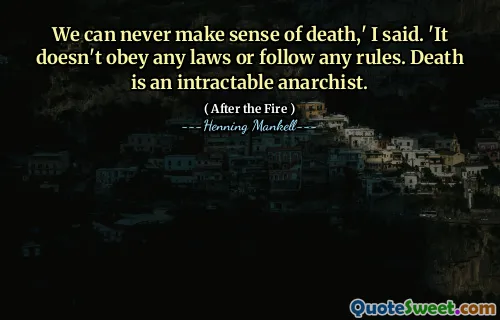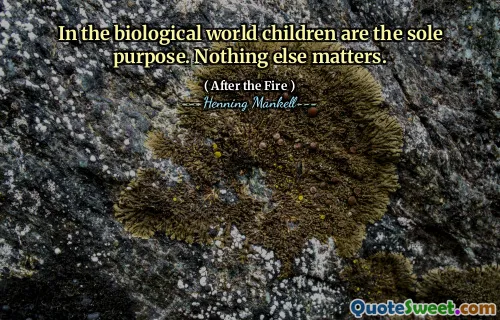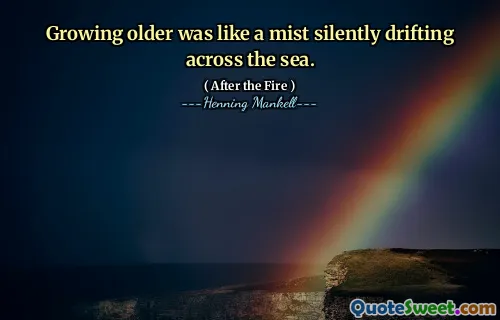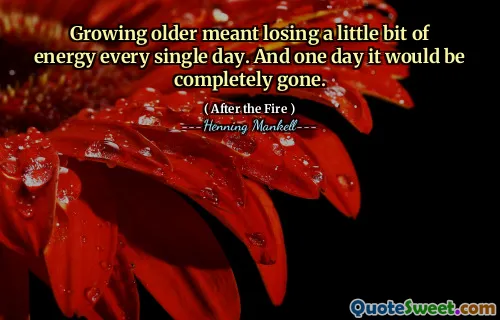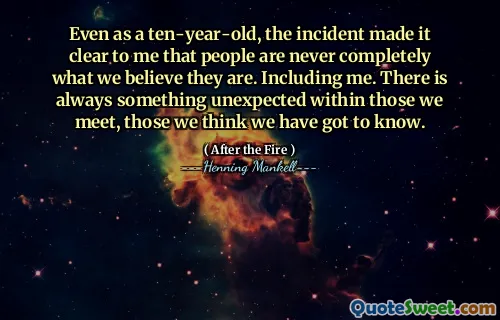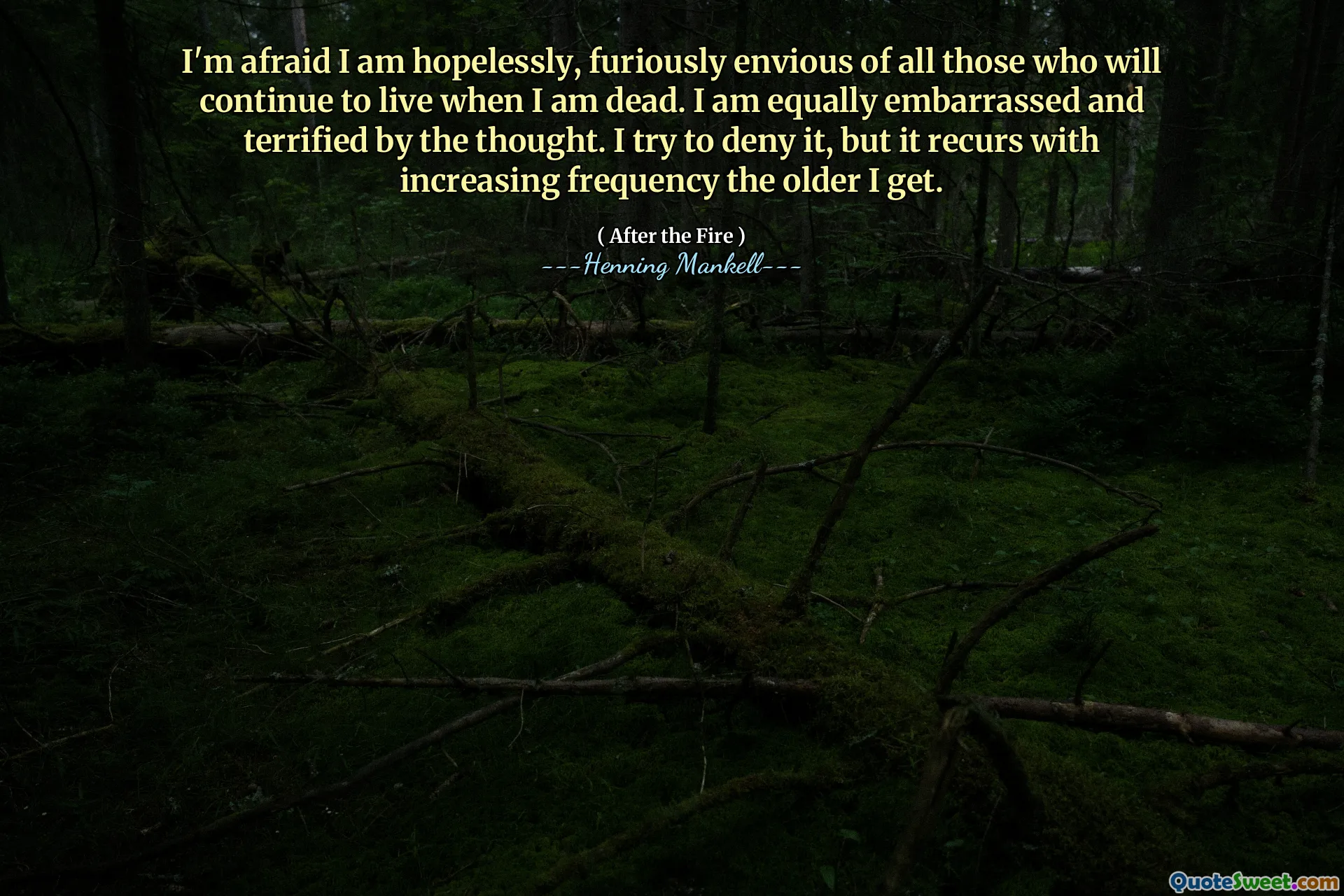
I'm afraid I am hopelessly, furiously envious of all those who will continue to live when I am dead. I am equally embarrassed and terrified by the thought. I try to deny it, but it recurs with increasing frequency the older I get.
The quote expresses a deep sense of envy that the speaker feels towards those who will continue to live after their own death. This sentiment highlights a struggle with mortality and the recognition of life's transient nature, especially as one ages. It reveals a vulnerability and a longing for the continuity of life that the speaker finds themselves disconnected from, leading to feelings of embarrassment and fear.
The author, Henning Mankell, captures this complex emotional landscape, where the acceptance of death intertwines with a yearning for the experiences and moments that others will continue to enjoy. As time progresses, these thoughts become more pressing, showcasing a universal human concern about legacy, existence, and the resistance to the inevitable end that awaits everyone.
